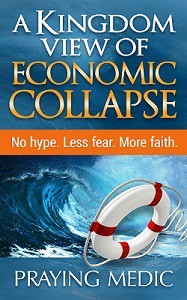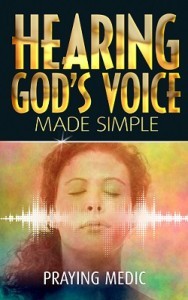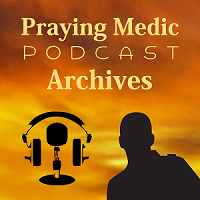Praying Medic's Blog, page 100
January 22, 2016
Is Abortion Ever Medically Justifiable?
Today is the 43rd anniversary of the Supreme Court’s landmark decision legalizing abortion. One of the front runners in this year’s Presidential election has taken a stand against abortion, regardless of the reason. Many people believe we must allow abortion in cases of rape, incest or where the life of the mother is at risk. I won’t discuss cases of rape or incest in this post, but I would like to examine the idea that abortion should be reserved for cases where the mother’s life may be at risk. First we need to bring a little clarity to the terms used in this discussion.
As they pertain to abortion, the “life” of the mother is completely different issue from the “health” of the mother. Whether an abortion is necessary to save the life of a pregnant woman is easy to determine. If an abortion is the only (or most reasonable) option known to medical experts to save the life of a pregnant woman with a certain medical condition, it is medically justifiable. The health of a pregnant woman is a completely different issue.
The Supreme Court’s 1973 abortion ruling intended to allow abortion during the first two trimesters, but not during the third—unless the pregnancy posed a threat to the health of the mother. So far, so good. But the Court defined the word “health” so broadly that it can be applied to almost anything. The Court defined “health” to include “physical, emotional, psychological, (or) familial” trauma. These qualifiers allow for an almost unlimited number of possibilities.
If for example, a pregnant woman suffers shame or guilt because of how her family perceives her pregnancy, this would constitute a valid reason for an abortion, because it negatively impacts her metal health. If a mother believes her health may suffer in any way—regardless of which health factor she identifies—she can legally have an abortion at any time during her pregnancy. The point here is that making an exception for the health of the mother is not the same as making an exception to save her life.
There are a number of medical conditions that must be considered when looking at what procedures might be needed to save the life of a pregnant woman. We’ll look at them one at a time, but first a few basic facts about pregnancy:
A full term pregnancy is considered to be 40 weeks in duration. Not surprisingly, full term babies have a very high survival rate. But what about babies delivered before full term?
Due mostly to advances in technology, a baby that is delivered today at 25 weeks gestation has between a 50-80% chance of survival to discharge from the hospital. At 24 weeks the odds are ten percent less. At 23 weeks it has a 10-30% chance of survival. At 22 weeks the chance of survival drops to less than 10%. There are no known cases of a baby surviving birth at 21 week gestation. (source) A baby delivered after 23 weeks (whether by vaginal birth or by c-section) has a decent chance of survival to discharge from the hospital.
Now let’s look at specific medical conditions that could be a threat to a pregnant woman. You might imagine there are dozens of different medical conditions that could potentially threaten the life of a pregnant woman, but in fact—there are only a few. Eclampsia is one of them.
Eclampsia is a condition marked by hypertension, protein in the urine and in serious cases—seizures. In rare cases, eclampsia can be fatal, due to prolonged and uncontrolled seizures. But eclampsia is a late-term condition. Ninety percent of cases occur after the 34th week of gestation. Although the symptoms of eclampsia can be treated with medications, the best treatment is delivering the fetus—either by inducing labor or by c-section.
Preeclampsia is a related condition that has the same symptoms as eclampsia, but without seizures. Preeclampsia can begin around the 20th week, but it is not a threat to the mother’s life. It is only when preeclamspia becomes eclampsia that it threatens the mother’s life, and that happens late enough in pregnancy for the fetus to survive delivery. Since eclampsia is only a threat late in pregnancy and since it can always be treated by delivering the fetus, there is no medical necessity for an abortion to save the mother’s life.
There are a couple of other conditions that pose a threat to the lives of a pregnant woman and fetus during late stage pregnancy. Abruptio placenta is when the placenta detaches from the lining of the uterus and the blood supply to the fetus is compromised. This condition sometimes results in fetal death, but in the majority of cases, a viable baby can be delivered either vaginally or by c-section, if detected early enough. Placenta previa occurs when the placenta blocks the cervical opening. Once diagnosed, most cases are treated with delivery by c-section. Abortion is never necessary to treat either of these conditions.
Some have argued that medical conditions such liver failure, heart failure and kidney failure may require treatment during pregnancy (including the possibility of organ transplant) and such cases may require a pregnancy to be aborted. While it’s true that some mothers who are pregnant may have these conditions, the conditions themselves are not caused by pregnancy and ending the pregnancy won’t provide any therapeutic effect to the mother. Whether the pregnancy is ended or not, the mother will still have the condition, thus there is no medically justifiable reason to terminate a pregnancy for such conditions.
Some have argued that cancer treatments such as chemotherapy and radiation cannot be safely done during pregnancy and since these treatments may save the life of the mother, they are a valid medical reason for abortion. Pregnancy doesn’t interfere with these treatments. All standard treatments that may be necessary for a cancer patient can be done on a pregnant woman just as easily on one who is not pregnant. The effects of such treatments on a fetus cannot be reliably predicted. While it’s true that these treatments may have an adverse effect on the fetus, it’s equally possible that a fetus will suffer no harmful effects. This exhausts the list of medical conditions that pose a threat to a woman’s life in late-term pregnancy.
In any pregnancy where a medical condition threatens the life of the mother, if the pregnancy needs to be terminated, and is past the 23rd week, the baby can simply be delivered either by inducing labor or by c-section, without harming either the baby or the mother. Stated in another way—there is no medically justifiable reason for abortion after about the 23rd week of gestation. This is true regardless of the medical condition in question. Which brings us to conditions that threaten the life of a woman early in pregnancy.
What conditions pose a legitimate threat to the mother’s life in an early-term pregnancy?
There is only one: ectopic pregnancy.
 Ectopic pregnancy occurs when the embryo implants outside the uterus—typically in the Fallopian tubes, but rarely in the ovary, abdomen, or cervix. In almost all cases, ectopic pregnancy does not result in a live birth, although there have been documented cases of successful live births:
Ectopic pregnancy occurs when the embryo implants outside the uterus—typically in the Fallopian tubes, but rarely in the ovary, abdomen, or cervix. In almost all cases, ectopic pregnancy does not result in a live birth, although there have been documented cases of successful live births:
In September 1999 an English woman, Jane Ingram gave birth to triplets. Two of the fetuses developed in the uterus, while the third developed outside the uterus. All three survived.
In July 1999, Lori Dalton gave birth by c-section in Ogden Utah, to a healthy baby girl who had developed outside of the uterus.
In 1999, a healthy baby boy was delivered in London after having implanted in his mother’s fallopian tube.
In 2000, a healthy baby girl was delivered in Nottingham (UK) despite the fact that the placenta attached to the lining of her mother’s bowels.
In 2005, a woman in the UK gave birth to a healthy baby girl who spent the entire pregnancy in her mother’s abdomen.
In 2008, a woman in Australia delivered a healthy baby girl from an ovarian pregnancy.
The odds of a fetus surviving ectopic pregnancy are extremely slim, but it does happen. Ectopic pregnancy can, in rare cases, be fatal to the mother. What kind of threat does it pose?
A report on ectopic pregnancy published by the American Academy of Family Physicians (AAFP) reveals that ectopic pregnancy occurs at a rate of about 19.7 cases per 1,000 pregnancies in North America. To date, 14 studies have documented that between 68 and 77 percent of ectopic pregnancies resolve without intervention. Most cases are never treated. The embryo usually miscarries without medical intervention and the pregnancy ends.
Next let’s calculate the risk of death to the mother:
The CDC reports that between 2003–2007, there were 0.5 maternal deaths related to ectopic pregnancy for every 100,000 live births. Death is usually due to hemorrhage after the Fallopian tube ruptures. Although the likelihood of death for a mother with ectopic pregnancy is extremely small, the risk of continuing the pregnancy is real, and the baby’s chance of survival is almost zero.
When the life of the mother is threatened by continued pregnancy, sound ethics tell us that everything possible should be done to save the lives of both the mother and the child. After the 23rd week, the pregnancy can be terminated by inducing labor or performing a c-section. But when pregnancy endangers the life of the mother during the first half of pregnancy, the most ethical course of action is harder to determine. The reason abortion is condemned by so many people is because it kills an innocent human being. What do you do when the existence of one human being, through no fault of their own, threatens the life of another human being? Do you end the life of the child, to save the life of the mother?
The problem can be viewed this way:
A) If the pregnancy is allowed to continue, the mother will die, and if the mother dies, the child will die.
B) If the pregnancy is ended through abortion, the child will die, but the mother will live.
The question is usually put in these terms: If there is no way to save the child, but there is a way to save the mother, it is ethical to save the mother’s life by ending the child’s life? Isn’t it better to save one life, than to lose two?
Those in favor of abortion tend to view the outcomes of such pregnancies as guaranteed: “My doctor said that if I had not had the abortion, I would have died.” Although this reasoning may appear to be sound, in reality, the outcome can never be known with certainty. Although we can say with certainty that if a mother dies, the child will die—we can never say with certainty that if the pregnancy were to continue the mother would die. Unless you are omniscient, it’s impossible to say what would happen to a mother if a procedure had not been done. The best we can do is guess. And if we want to be truthful, we must admit that we can never know with certainty whether a mother will live or die if she does not have an abortion. Therefore, we must modify statement A above. The first part would need to read:
A) If the pregnancy is allowed to continue, the mother might die…
There is a world of difference between “will die” and “might die,” and this is where things get sticky. Like any other medical condition, pregnancy always carries a small risk of death, and an ectopic pregnancy increases that risk slightly. But does that small risk justify an abortion?
By the time an ectopic pregnancy is discovered (typically by 7 to 8 weeks gestation) the embryo has usually died. When an ectopic pregnancy is discovered and the embryo is still alive, one of two procedures is performed. If the mother has a healthy, normal ovary and Fallopian tube on the opposite side of the ectopic pregnancy, the Fallopian tube and embryo are surgically removed. If she does not have healthy organs on the opposite side, an incision is made in the Fallopian tube and the embryo is removed. (Everything possible is done to assure the mother has at least one healthy Fallopian tube and ovary.)
This procedure is always fatal to the embryo. And although it bears some similarity to an elective abortion, it is generally viewed differently—even by religious organizations that oppose abortion. The death of the embryo or fetus is the sole purpose of an elective abortion, but it is the undesired and unavoidable consequence of surgically treating a life-threatening ectopic pregnancy. This seems to be the one situation in which ending a pregnancy is medically justifiable.
Thanks for bearing with me. I hope this article has helped you see this issue a little more clearly.
The post Is Abortion Ever Medically Justifiable? appeared first on Praying Medic.
January 21, 2016
Observations on The Current Stock Market Collapse
During the stock market collapse of 2007-2009, it took the DJIA eight months to lose 2,000 points. Yesterday, the Dow quietly lost 250 points, bringing its January losses to 2,000 points—accomplishing in three weeks what it took eight months to do in the last market collapse. In this message, I’d like to look at the forces that cause stock markets to collapse.
For several decades before the previous stock market crash, the government took the view that the “American Dream” of owning a home should be an attainable goal for everyone who had a job. The government encouraged the creation of new lending rules that made it possible for more people to qualify for home loans . The new lending rules needed to allow people with lower incomes to qualify for home loans. One way payments were made more affordable was by offering adjustable rate mortgages with low interest rates and low monthly payments for a few years—and higher interest rates with higher payments later on.
It was a time of fast-paced buying and selling of homes. To fill the increased demand, many new homes were built. Construction, home improvement, and building material companies prospered. The increase in jobs and higher productivity created a strong economy. And the growing housing market brought rapidly escalating home prices.
The Trouble with Bubbles
When the price of something rises quickly, there comes a point where buyers perceive the price as being too high. A price or market bubble exists when buying and selling is done at prices above the actual (intrinsic) value of the item being sold. When buyers leave the market because prices are too high, demand for the item decreases and prices begin to fall. The drop in price is known as a price or market correction. In normal conditions, a price correction takes prices back down to levels that more closely reflect intrinsic value.
The collapse of the housing market between 2007 and 2009 was a case of a deflating price bubble. Homes were being sold at inflated prices until they reached a point where buyers could no longer afford them. When buyers left the housing market, home owners were stuck holding mortgages for properties that were worth less than what they paid for them. When the short term low-interest payments expired and monthly payments went up, many people defaulted on their loans. The wave of defaults created a surplus of homes. The surplus returned home prices to more realistic levels.
The majority of money invested in stock markets comes from financial institutions like banks and insurance companies. Financial markets live and die by the flow of institutional money. The prosperity of the stock market prior to the crash in 2008 was due primarily to an influx of money from the banking industry, which was due largely to the housing boom. Everything seemed to be going smoothly until the economy hit a snag and people began losing their jobs. As unemployment rose and borrowers could no longer afford their mortgage payments, a wave of foreclosures followed. Borrowers defaulted on home loans by the tens of thousands—leaving banks with massive debt loads on their balance sheets. Many banks did not survive due to the burden of bad debt. And as banks failed, the money that supported stock market prices was withdrawn, causing a market collapse.
The stock market crash of 2007-2009 was another example of collapsing market bubble. Stock prices at the time were inflated far above their actual value. The market correction would have taken them down to their intrinsic value, were it not for one thing: When the federal government saw a wave of bank failures coming and a collapsing stock market, it stepped in and provided trillions of dollars of relief, in the form of new money, which it loaned to banks to keep them from failing. The new money allowed banks to continue operating. And as banks always do, they invested the new money in the stock market. The investment of new money prematurely halted the market correction. Stock prices never reached their intrinsic values. Since then the market has boomed, but there is still the problem of inflated stock prices. Eventually, the market must correct itself again and prices must fall to levels that more closely reflect intrinsic values. It could be that the decline we’re seeing now is the restart of market correction that was halted in 2009.
This is an excerpt from my book A Kingdom View of Economic Collapse. If you’d like to check out the book, click on the link or on the image below.
The post Observations on The Current Stock Market Collapse appeared first on Praying Medic.
January 18, 2016
Healing PTSD
 I received a e-mail from a man named José who is a missionary to Uganda. He had read several of my books and wanted to know if I might help his son, who was a paramedic firefighter who developed post traumatic stress disorder (PTSD) and could no longer work. José said he would be in our area for a few weeks and wanted to know if I would meet with him and his son for prayer. I agreed and we set up a time to meet at a city park.
I received a e-mail from a man named José who is a missionary to Uganda. He had read several of my books and wanted to know if I might help his son, who was a paramedic firefighter who developed post traumatic stress disorder (PTSD) and could no longer work. José said he would be in our area for a few weeks and wanted to know if I would meet with him and his son for prayer. I agreed and we set up a time to meet at a city park.
The day we agreed to meet had arrived. I parked and walked toward a picnic table where two men were sitting, one older and one younger. They got up as they saw me approaching. We shook hands and introduced ourselves then sat down at the table. José, thanked me for coming to meet with them. His son, David and I talked for 20 minutes about his work as a paramedic and his separation from the fire department due to PTSD. I explained my process for emotional healing and asked if he wanted to give it a try. He agreed. I explained that I needed him to recall some of the more painful events from his career. “Where you want to start?” he asked.
“It doesn’t matter,” I said. “Just pick a call you went on that’s especially painful when you think about it.”
“I was working on the engine one night and we went on this call for a motor vehicle accident. It never should have happened. The kid was just being stupid. He went out and got drunk. Then he drove his car into a tree. I was first on scene. The car was ripped in half and he was laying there, a bloody mess. There was nothing we could do to save him.”
“Okay David, as you think about this call, what emotion is the strongest?”
His eyes searched the trees behind me. “Grief. Just a lot of grief for his family.”
“Okay, just repeat everything I say. Jesus, I ask you to take this grief from me. I don’t want it anymore. I ask you to heal the wound in my soul. I receive your healing. In place of grief, I ask you to give me peace.” He repeated everything I said. “Okay, now I want you to think about the call one more time. You’re on the engine responding to the call. You arrive on scene and find the car ripped in half and this dead kid there. What emotion do you feel now?”
“Sadness. Just a lot of deep sadness.”
“Okay, repeat after me again: Jesus, I ask you to take this sadness from me. I don’t want it anymore. I ask you to heal the wound in my soul from it. I receive your healing. In place of sadness, I ask you to give me joy.” He repeated my words again. “Okay, now I want you to think about the call again. You arrive on scene and find the car torn in half and this dead kid there. What emotion do you feel now?”
David looked down for a moment, then looked at me. “Nothing. The sadness and grief are gone. I don’t feel anything. Maybe a sense of peace.”
“It’s pretty simple isn’t it?” I asked. “Isn’t Jesus awesome?”
“Yes he is.”
“I want you to remember another call you went on that is especially painful when you think about it.”
“It was Christmas day and I was on the engine again. We responded to this house. The family had gathered for the holidays and the grandfather tripped and fell. His knee came down on this baby’s head and squashed it like a football. The parents were crying and there was a lot of emotion. I knew the kid was dead and there was nothing we could do to help them. But I told the family I would start an IV and we would do what we could.”
“As you think about this call, what emotion do you feel?”
“Grief. Just a lot of grief for the family.”
“Okay, Jesus, I ask you to take this sadness from me.” He repeated what I said. “I ask you to heal the wound in my soul. I receive your healing. In place of sadness, I ask you to give me joy.” He repeated my words again. “Okay, now I want you to think about the call again. You arrive on scene and find this dead kid. What emotion do you feel?”
“Nothing. Nothing at all. I can’t believe it. Is it really that easy?” He asked smiling.
“It is that easy. I’m friends with a lot of people around the world who study healing. We all know the Bible verse that says ‘by his stripes we are healed.’ But few people think about the verse before it that says ‘he bore our griefs and carried our sorrows.’ Griefs and sorrows are emotions that are painful. If Jesus bore them for us, there’s no reason for us to carry them any longer, is there?”
“I guess not.”
We spent about 30 minutes recalling one event after another, identifying the painful emotions and giving them to Jesus. I explained that the process is simple enough that he could do it without me. I encouraged him to continue recalling painful events from the past and giving the emotions to Jesus. I explained that it works on present emotions as well as ones from the past. “It’s hard to go through life without becoming offended or hurt by the things people say. If we allow things to wound us, it gives the enemy a place to attack us. But if we give the emotions to Jesus right away, it keeps us at peace. As soon as you recognize a new emotional wound, you might consider asking Jesus to take the painful emotion and heal you.”
I asked David if he had any physical pain he wanted to be healed of. “Yeah, both of my shoulders are sore all the time. I think I might have torn rotator cuffs.”
“Have you had an MRI yet?”
“Not yet. But I know the symptoms.”
I had him stand up. “Raise your left arm out to your side as high as you can until you feel pain.” He raised his arm a little higher than 90 degrees then put it back down. I placed my hand on his left shoulder. “Holy Spirit, bring your power and presence. I command ligaments, nerves, tendons, bones, muscles, and cartilage to be healed in the name of Jesus. Spirit of pain, I command you to leave. Lord I thank you for your healing.” I asked him to raise his arm again. He was able to raise it straight up without any pain.
He began laughing. “Are you kidding me? That’s amazing.”
“Now let’s do the other one.” I had to pray over his right shoulder four times before all the pain left. (I don’t know why it is that an injury will be healed with the first prayer on one side of the body, but not on the opposite side.) We sat down at the table again and talked about the power and authority we have access to as believers. I brought along a copy of my book Divine Healing Made Simple. I handed it to him and told him he may want to begin reading it, if he wanted to know more about healing.
“My dad told me a lot about you. I really want to start living the supernatural life. Thanks for the book. I’m definitely going to start reading it.”
“You do that. And if you ever have any questions, you know how to get a hold of me.” It was getting late and I needed to get back home. We all got up from the table. I gave José and David a hug. They went to their truck and I got in my Jeep. I love seeing people healed, but there was something special about being able to help a fellow paramedic who has been through the same kind of trauma I’ve been through. It was an afternoon I won’t soon forget.
The post Healing PTSD appeared first on Praying Medic.
January 15, 2016
How to Experience God’s Blessings
 I received a question from a reader this week asking why, if God desires to bless us in so many ways, do we sometimes fail to experience his blessings?
I received a question from a reader this week asking why, if God desires to bless us in so many ways, do we sometimes fail to experience his blessings?
In order to understand how God’s blessings work, we must understand three things: The first is that God has specific plans for how he would like each of us to live. The second is that we have free will, which allows us to either follow his plans or ignore them. The third is that his blessings, to a large degree, are determined by how closely we follow his plans.
One day, Peter was asked if Jesus paid the temple tax. Being a good Jew, Peter said yes. God had a plan to help pay the tax, but Peter needed to do a couple of things in order to experience the blessing he intended. The first thing he needed to do was bring the matter to Jesus. The Lord told him the Father had a plan to take care of the taxes: “Go down to the sea, throw in your line and look in the mouth of the first fish you catch. Use the coin you find to pay the tax for you and me.”
Peter now understood the plan, but before he could experience the blessing, he needed to take action. And this is where many of us fail to receive what God wants to give us. We receive the dream or the prophetic word revealing the plan. We realize he has provided an opportunity for blessing, but we don’t follow through. The instruction Jesus gave Peter was a bit far-fetched. He could have chosen not to obey and few people would have blamed him. But he exercised his free will, did what the Lord told him to, and he experienced the blessing of God.
God is not in control of the things that happens to us. If he were, we would not have free will. He has plans and he provides opportunities, but we have free will, and many times the exercise of our free will causes us miss out on his blessing. If you choose to eat nothing but junk food, you may miss out on his plan to bless you with health. If you choose to spend what extra money you have on video games instead of investing it, you may miss out on his desire for you to have a comfortable retirement.
Other people are allowed to exercise their free will against God’s plans for us, and he doesn’t (generally) interfere, lest he remove their free will. If someone sues you, it may frustrate his desire to bless you financially. If someone stabs you on the street, it can negate his desire for you to live a long life. The unwise or unrighteous exercise of free will is the main way in which we frustrate Gods’ desire to bless us.
When we are in danger of losing his blessing, he’ll usually send us warnings and instruction. But we may not be able to recognize his voice or understand his warnings. When we fail to experience his blessings, it is often because we’ve failed to understand his plans or because at some point, we’ve wandered from the path he set before us.
If you’re not experiencing the abundant life Jesus promised, you might ask him if you’ve gotten off the path he’s chosen for you. This isn’t about doing things to earn God’s favor. It’s about living in the center of God’s will for your life, where his blessings flow continually, and he guards you like a strong tower. And if the problem is that you’re not hearing his voice clearly, you might check out my book Hearing God’s Voice Made Simple.
Related:
Why Does God Allow…?
The post How to Experience God’s Blessings appeared first on Praying Medic.
January 12, 2016
Podcast 041: Krista Bontrager – Healed of Bipolar
To open in a new window, click on this link: podcast 041
In this episode, my friend Krista Bontrager shares her testimony of being healed of bipolar disorder. Krista suffered symptoms of depression all her life. After attending seminary and becoming a professional theologian, her life began spiraling out of control and that’s when she discovered the keys to her freedom. If you know anyone who suffers anxiety, depression or bipolar, this message is sure to give them hope.
Resources
Spiritual Warfare by Karl Payne
Listen or Subscribe
Past Episodes
The post Podcast 041: Krista Bontrager – Healed of Bipolar appeared first on Praying Medic.
January 11, 2016
Podcast 041: Krista Bontrager – Healed of Bipolar
To open in a new window, click on this link: podcast 041
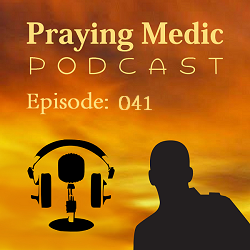
In this episode, my friend Krista Bontrager shares her testimony of being healed of bipolar disorder. Krista suffered symptoms of depression all her life. After attending seminary and becoming a professional theologian, her life began spiraling out of control and that’s when she discovered the keys to her freedom. If you know anyone who suffers anxiety, depression or bipolar, this message is sure to give them hope.
Resources
Spiritual Warfare by Karl Payne
Listen or Subscribe
Past Episodes
The post Podcast 041: Krista Bontrager – Healed of Bipolar appeared first on Praying Medic.
January 10, 2016
Sid Roth Taping Date
About a year and a half ago, a group of friends wrote to It’s Supernatural and asked them to consider having me as a guest on their show. I had mixed feelings about doing the show when I was first contacted by one of the producers. I wasn’t sure I was ready to go on camera yet, but after some prayer and a little encouragement from the Holy Spirit, I decided to accept their offer. I’ll be taping a show with Sid Roth in their studios in Charlotte, North Carolina on February 4th. The show is recorded in front of an audience and there are a limited number of tickets available, if you’d like to attend the taping.
Tickets to attend the show are free. You can get them by contacting the studio through their contact page at this link.
The show should be airing some time in March. You can find out the exact date through the show’s website. I’ll post a YouTube video when it becomes available.
Thanks for your love and support,
~ PM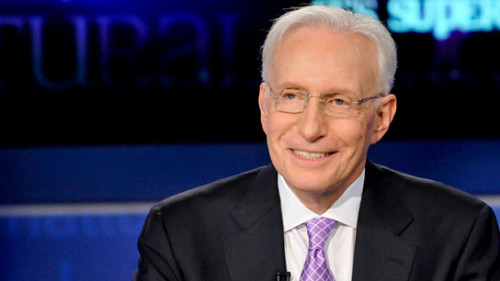
The post Sid Roth Taping Date appeared first on Praying Medic.
January 6, 2016
Wars and Rumors of War: Is the End Near?
It’s hard to have a conversation with a group of Christians today without someone bringing up the idea that we are living in the end times or the last days. One argument used to support this idea is the perception that we have in our lifetime, seen a great proliferation of war and that war is one of the things Jesus spoke of when describing the days immediately before his return.
But have we really experienced a proliferation of war ?
This video illustrates the global death toll from war, beginning with World War II. It then takes a look at deaths from war during past centuries, and finally at deaths during the last 75 years. The numbers may surprise you.
The post Wars and Rumors of War: Is the End Near? appeared first on Praying Medic.
January 2, 2016
What Did Jesus Teach About Divorce and Remarriage?
Among Christians, divorce and remarriage tend to be viewed through a strict lens of biblical interpretation. It’s widely believed that Jesus taught that if a woman who has been divorced remarries—she is guilty of committing adultery. If you asked 100 seminary grads today how Jesus viewed divorce and remarriage most of them would tell you that this is the position He took.
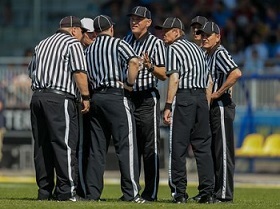
But is this really what He said?
You would probably arrive at this conclusion yourself if you read most modern Bible translations. The King James is the most common translation used in Bible colleges and seminaries—particularly those with a fundamentalist perspective. No Bible translation is without problems. And although the King James is a respected translation, it is notorious for its improper translation of key words. And sadly, many of these mistranslations have found their way into other translations. Worse, is the fact that these translational errors aren’t usually discussed in Bible colleges and seminaries. So leaders are taught what positions they ought to take, without knowing that their views may be based on a faulty translation.
For the sake of clarity, I’d like to focus on one passage concerning divorce and remarriage. It’s a representative passage that clearly shows how Jesus viewed the subjects of marital separation, divorce and remarriage. If you compare similar passages, you’ll find the same teaching. The first place in the scriptures where Jesus taught on this subject is found in the Sermon on the Mount in Matthew chapter five. They key here is that we need to look closely at the words He used for two terms: “divorce” and “put away.”
In verses 31 and 32 of Matthew chapter five, Jesus corrected a common practice of the Jews:
It hath been said, Whosoever shall put away his wife, let him give her a writing of divorcement: But I say unto you, That whosoever shall put away his wife, saving for the cause of fornication, causeth her to commit adultery: and whosoever shall marry her that is divorced committeth adultery. (Mat 5:31-32)
At first glance, the meaning of this passage seems pretty straightforward. Jesus was talking about two different things related to marriage. First he mentioned a practice called “putting away.” He said that there was only one condition for which a man could put away his wife. He went on to say that if a wife were put away for any other reason, the man who did so was guilty of causing her to commit adultery. In mid-sentence he changed subjects and said that if anyone married a woman who was divorced they would be guilty of adultery.
Or did He?
To know with certainty what He actually said, there are a couple of words we need to look at in the Greek text. The first is the word ἀποστάσιον (apostasion) which is nearly always translated “divorce.” This is the last word found in verse 31, but in verse 32 it is conspicuously absent. Instead, the Greek word ἀπολύω (apolyō) is used twice. This word is nearly always translated “separated,” or “put away.” Except for the second time it appears in this verse. And in that case it is translated divorce.
It’s odd that the translators would choose to translate the first instance of this word “put away” and the second one “divorce,” since the words have completely different meanings. Stranger still is the fact that when you look at the context of the passage it doesn’t make sense to translate it this way. The way it’s been translated, Jesus was apparently addressing the subject of wives being put away, but then shifted the conversation to the subject of divorce. If you translate the second instance of the word apolyō to match the first, the passage makes more sense and it takes on an entirely different meaning. Here is how it would be rendered:
It hath been said, Whosoever shall put away his wife, let him give her a writing of divorcement: But I say unto you, That whosoever shall put away his wife, saving for the cause of fornication, causeth her to commit adultery: and whosoever shall marry her that is put away committeth adultery.
Do you see the difference?
If we translate the second instance of the word apolyō the way it would normally be translated, the passage flows more naturally. And we can see that Jesus wasn’t addressing divorce at all in this discussion. He was addressing the practice the Jews had of “putting away” their wives, and nothing else. A little background information on that practice might be helpful:
Under the practice of “putting away” their wives, Jewish men would kick their wives out of the home if they were unhappy with them. No particular reason was necessary and no certificate of divorce was given to them. The wives were still legally married to their husbands, though they were no longer allowed to live with them. In modern culture, it would be like a marital separation. And because the wives were not given a certificate of divorce, they could not legally remarry, although their husbands would usually find new wives. Jesus intended to correct this erroneous practice.
First, He placed a condition on the practice of putting away a wife. He said that it was only for the cause of fornication that a wife could be put away. No other reason was justified. Second, He pointed out that if a man put his wife away without giving her a certificate of divorce, she could not remarry without committing adultery, because she would be married to two men at the same time. Rather than forbidding a woman to remarry after she was put away, He demanded the Jews give their wives a certificate of divorce so they could remarry legally if they chose to. Being a man filled with compassion for those whose marriages had been destroyed, He provided a path to remarriage after divorce.
Mathew 19
There is another passage where Jesus taught on this subject and it needs to be considered. In Matthew chapter 19, the Pharisees questioned Jesus about their practice of putting away their wives. (Matthew noted that they did this to trap Him.) In verse 9 of that chapter, the Lord gave them the same instructions found in this chapter. He even used the same words.
Other Translations
I’m not alone in my view about the best way in which to translate this passage. The American Standard Version (ASV) and Young’s Literal Translation (YLT) both translate this passage the way I’ve described.
I hope this explanation has helped you. If you’ve been condemned for remarrying after a divorce, maybe this will give you comfort. It may take a while for church leaders to see this issue differently. Traditions can be difficult to change. But if the opportunity arises, you might point out the mistranslation and start the ball rolling. Who knows where the conversation will end up.
The post What Did Jesus Teach About Divorce and Remarriage? appeared first on Praying Medic.
December 30, 2015
Coffee: A Little Known Cancer Killer?
 There’s been a lot of debate over the health effects of coffee, including some reports suggesting that it may be dangerous to our health. But more recently, there have been claims that it may actually have proven health benefits. Being a long-time coffee drinker, I was curious to know if there was any scientific evidence to back up these claims. I did some web surfing and found that there’s research suggesting that coffee may have health benefits—most notably in the area of fighting cancer. I’ll share what I’ve learned below, but I’d also like to share a word of warning: These studies are not conclusive and there are other factors to be considered before we can know the overall effects of coffee on our health.
There’s been a lot of debate over the health effects of coffee, including some reports suggesting that it may be dangerous to our health. But more recently, there have been claims that it may actually have proven health benefits. Being a long-time coffee drinker, I was curious to know if there was any scientific evidence to back up these claims. I did some web surfing and found that there’s research suggesting that coffee may have health benefits—most notably in the area of fighting cancer. I’ll share what I’ve learned below, but I’d also like to share a word of warning: These studies are not conclusive and there are other factors to be considered before we can know the overall effects of coffee on our health.
Coffee and Antioxidants
When hot water runs through coffee grounds while brewing, the substances in the coffee beans mix with the water and become part of the drink. Some of these substances are well-known, including caffeine, but there are hundreds of other compounds in the mix as well—many of which have yet to be identified. Some of these compounds are antioxidants that protect our bodies from oxidation, which involves free radicals that damage molecules in the body. Believe it or not, coffee is the largest source of antioxidants in the Western diet (1, 2, 3).
Coffee and Lifespan
Research that analyzes large populations over a number of years provides the best data for assessing long-term health benefits. A groundbreaking study was published in the New England Journal of Medicine in 2012. In this study, 402,260 individuals between 50 and 71 years of age were asked about their coffee consumption. After following the study group for 12-13 years, those who drank the most coffee were much less likely to have died. (Source)
Liver Cancer
At least eleven studies conducted in southern Europe and Japan have examined the relationship between coffee drinking and the risk of primary liver cancer. One was a meta-analysis of published studies on hepatocellular carcinoma (HCC) that included how much coffee patients had consumed. Researchers combined all published data to obtain an overall estimate of the association between coffee consumption and HCC. The results showed a 41 percent reduction of HCC risk among coffee drinkers compared to those who never drank coffee. (Source)
Colon Cancer
Drinking coffee may help prevent colon cancer, say German scientists, who have identified a potent antioxidant that increased protection against the disease in animal studies. Researchers have suspected for years that coffee could offer some protection against cancer thanks to its high antioxidant content, but for the first time they identified a specific anticancer compound that boosts the activity of phase II enzymes. “Until human studies are done, no one knows exactly how much coffee is needed to have a protective effect against colon cancer,” said study leader Dr Thomas Hofmann, professor and head of the Institute for Food Chemistry at the University of Muenster. “However, our studies suggest that drinking coffee may offer some protection, especially if it’s strong.” Espresso coffee contains about two to three times more of the anticancer compound than a medium roasted coffee beverage, he said. (Source)
Bladder Cancer
Researchers have long considered smoking a risk factor for bladder cancer. But the results of a study published in the January 2001 issue of the Journal of Epidemiology and Community Health suggest that risk may be far higher than previously thought. The same study, however, indicates that coffee may protect against bladder cancer, especially among smokers. Analyzing data from 500 diagnosed cases of bladder cancer, as well as 1,000 control subjects, the researchers found that non-coffee drinking smokers were seven times more likely to develop the disease as non-smokers. Coffee-drinking smokers, on the other hand, were only three times more at risk. Coffee appears to somehow reduce the harmful effect of tobacco use on the bladder. (Source)
Skin Cancer
Caffeine appears to lower the risk of developing skin cancer according to two studies (1, 2) done by Rutgers University. The first study demonstrated that a combination of exercise and caffeine protect against the destructive effects of the sun’s ultraviolet-B radiation, known to induce skin cancer. In the second study, they found that topical application of caffeine directly on the skin reduced tumor growth. Both studies used mice, but similar effects may be found in humans.
Breast Cancer
For women with the BRCA1 mutation, a genetic mutation that puts them at greater risk of developing breast cancer, study results suggest that drinking caffeinated coffee offers a significant level of breast cancer prevention. In a study funded by the Canadian Breast Cancer Research Alliance and the National Cancer Institute, researchers examined the records of 1,690 women who have the genetic mutations BRCA1 or BRCA2 and had the women answer a questionnaire about coffee consumption. Women who drank one to three cups of caffeinated coffee per day reduced their breast cancer risk by 10 percent. Women who drank four to five cups reduced their risk by 25 percent and women who drank six or more cups per day were 69 percent less likely to develop breast cancer than women who drank no coffee. (Source)
Diabetes
Drinking coffee, especially when it is decaffeinated, may be associated with a reduced risk of type 2 diabetes, according to a report in the June 26 issue of Archives of Internal Medicine. Previous studies in the United States and Europe have linked coffee to a reduced risk of type 2 diabetes. The link between coffee and diabetes risk appears to be consistent across different ages and body weights. In addition, most research has found that the more coffee an individual generally drinks, the lower his or her risk for diabetes. (Source)
These studies are good news for all of us who jump start our day with a jolt of java.
The post Coffee: A Little Known Cancer Killer? appeared first on Praying Medic.

